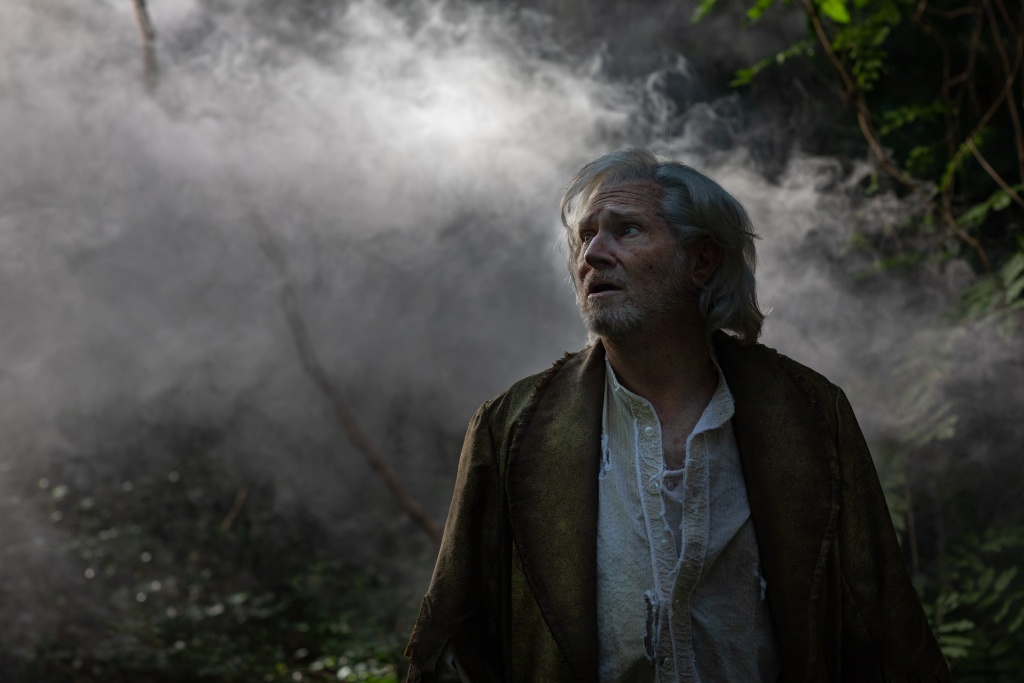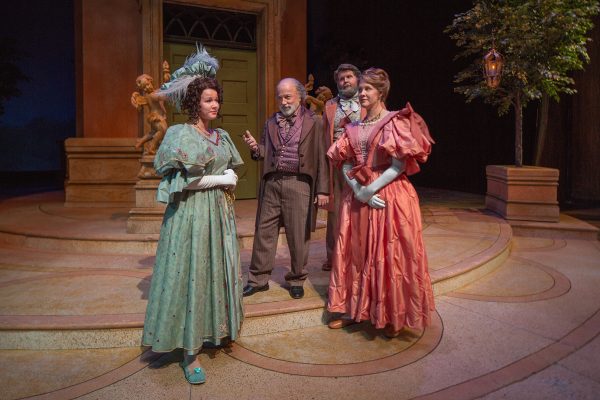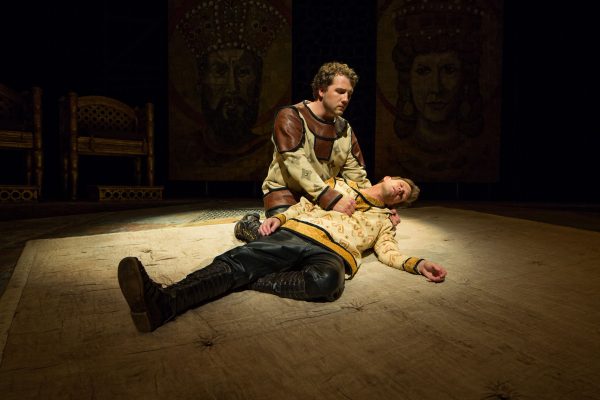How much the world of King Lear seems to mirror the irrationality of modern life depends ultimately on highly subjective values. Is death the final tragedy of life in a tragic world? Or can self-recoveries like those of Lear and Gloucester be placed in the balance against it? What is an untimely death? Is virtue its own reward?
The answers to questions like these are rooted in one’s assumptions about life and resist rational analysis. But whether Shakespeare provided for an optimistic appreciation of King Lear is arguable with reference to the patterns of action.
Counter-Movement 1
The first of two main patterns of action is that of the restoration of broken ties. Shakespeare organized the first three Acts as a series of exiles. The exile of Cordelia and Kent (1.1) precedes Edgar’s in the next scene (1.2).[1] The exile of Lear and his entourage takes place in two stages: his flight from Goneril (1.4–5) and his flight from Regan (2.4). In an accelerating rhythm of reduction, Lear is stripped of the trappings of majesty and left to the mercy of the storm. At the end of Act 3 Gloucester, blinded for having sided with the king, follows him out the same door, abandoned to “smell his way to Dover” (3.7.93–94).
But the initiative of evil is answered almost immediately by a reflex of the good. Kent reappears in disguise to serve his king (1.4). Edgar appears as Poor Tom four scenes later (2.3). Soon Lear is again in the company of his most constant servants.[2] This movement culminates when the fathers are rejoined by the offspring they have wronged—Gloucester by Edgar (4.1) and Lear by Cordelia (4.7). And in these crucial instances, they restore the former ties of political and filial devotion.
Counter-Movement 2
The second major pattern is that of the crumbling of ill-forged bonds. Politically King Lear is the story of the undigested third (1.1.130). Reports of a division between the dukes of Albany and Cornwall (2.1.7-15; 3.1.17-29; 3.3.8-9) give way after the death of Cornwall to indications of a jealous rivalry between Goneril and Regan for the love of Edmund (4.2.84-87; 4.5.6-32). The sisters will not be able to “hit together” much longer. Three scenes later Goneril can say, “I had rather lose the battle than that sister / Should loosen him and me” (5.1.18-19).
Meanwhile, a widening rift between Goneril and Albany has isolated the duke from the affairs of the evil conspirators. With the blinding of Gloucester, he declares himself their foe: “Gloucester, I live / To thank thee for the love thou show’dst the King, / And to revenge thine eyes” (4.2.95-97). Albany enters the field only after having been persuaded “with much ado” and having precisely defined the nature of his military obligation (5.1.21–27). Evidently Shakespeare would have his audience understand that the society cemented by vicious interest is highly unstable and that, with respect to England’s future, the dominion of evil cannot endure.
Long before the destructive forces have exhausted themselves, a counter-movement promises restoration for the aggrieved and renewal for the fortunes of England. Whether this movement carries through the conclusion is at least an open question. Old Gloucester, having unsaid his pessimistic utterances, dies “smilingly” in the company of his faithful son, due to be king. Lear dies thinking Cordelia lives, “a chance which does redeem all sorrows / That ever I have felt” (5.3.266-67). Edgar’s resilient optimism seems intact in the final lines of the play:
The oldest hath borne most; we that are young
Shall never see so much, nor live so long.
[1] References to the text are from The Complete Plans and Poems of William Shakespeare, eds. William Allen Neilson and Charles Jarvis Hill (Cambridge, Mass.: Houghton, 1942).
[2] Edgar is said by Regan to have been formerly in the company of Lear’s “riotous knights” (2.1.96–97).
Come see BJU’s production of King Lear November 15–17 at 8 p.m.








